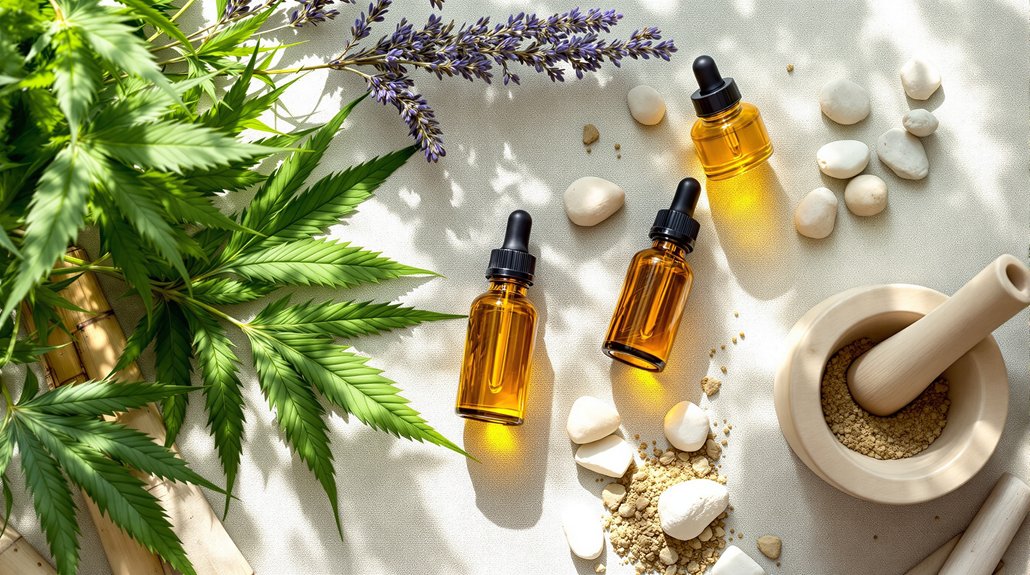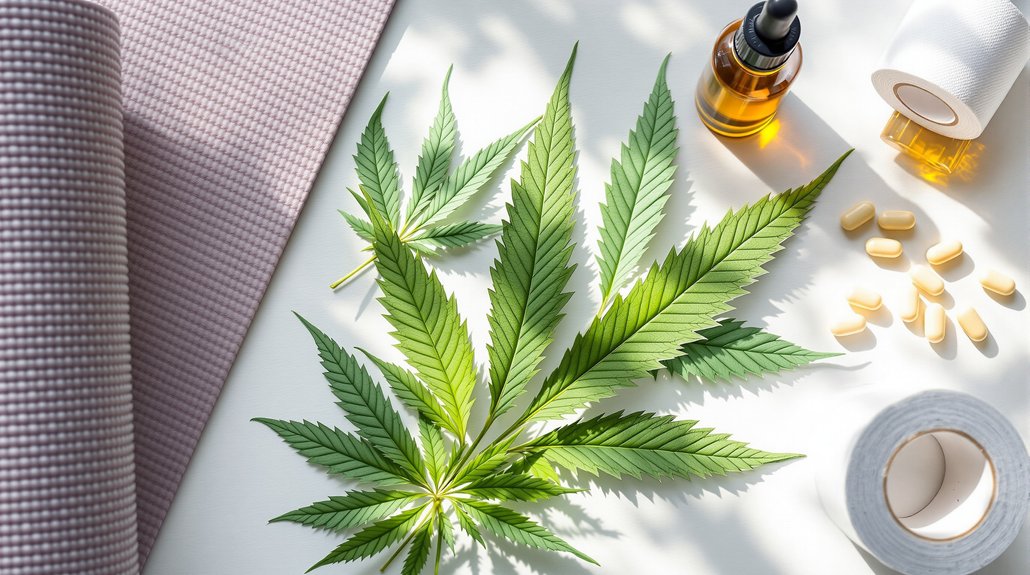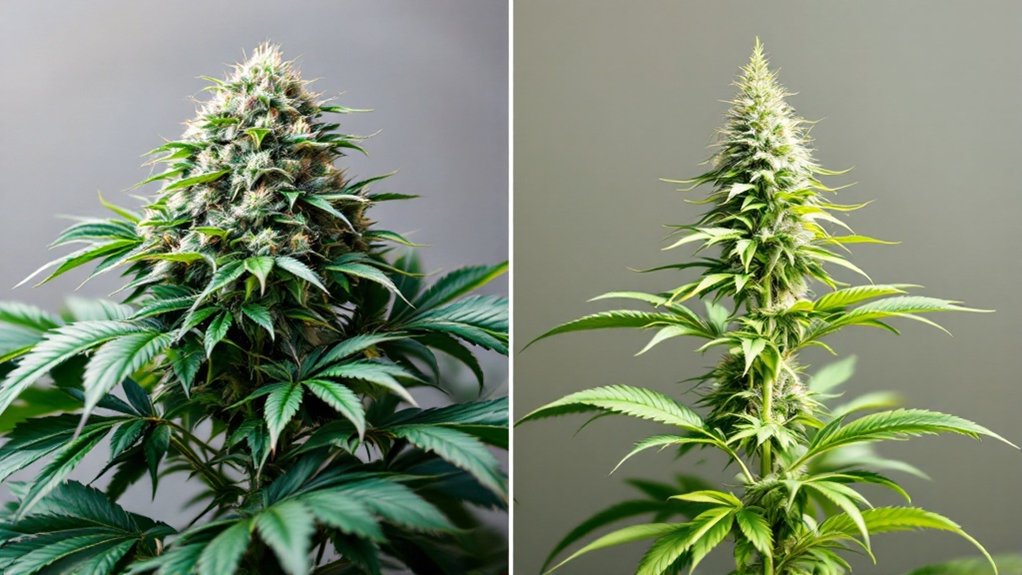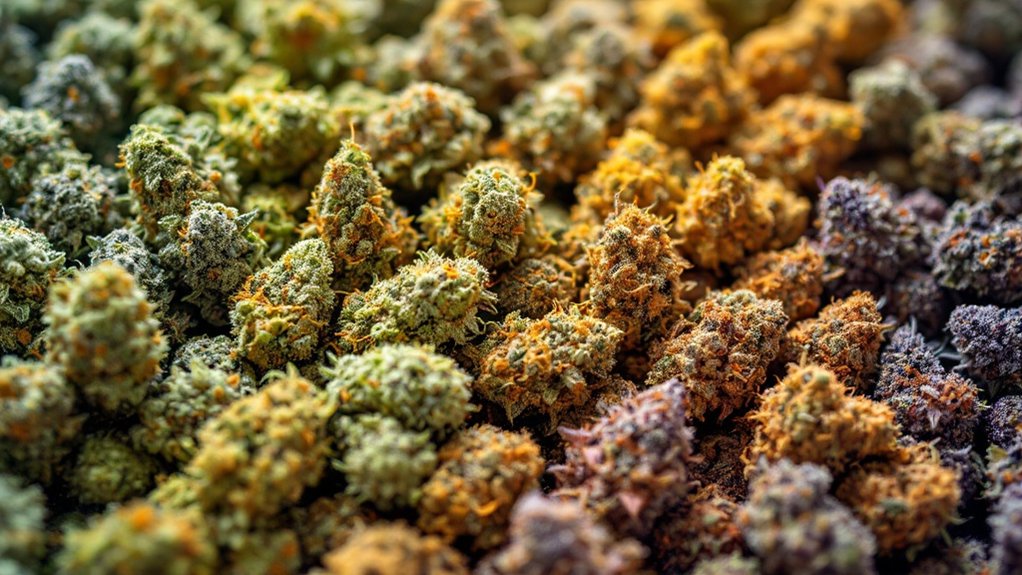Cannabis has quietly transformed from a controversial substance into a cornerstone of modern wellness regimens. Health-conscious consumers now incorporate cannabinoids into daily routines alongside yoga mats and meditation apps. The plant’s therapeutic compounds target specific wellness goals, CBD oils reduce workplace stress, THC microdoses enhance recovery workouts, and specialized strains optimize sleep cycles. This shift represents more than changing attitudes; it signals a fundamental reimagining of how people approach holistic health management in an increasingly demanding world.
Cannabis as a Natural Alternative for Pain and Inflammation Management

While traditional pain medications dominate pharmacy shelves, cannabinoids are carving out legitimate territory in chronic pain management through their unique interaction with the body’s endocannabinoid system. Research demonstrates moderate efficacy across neuropathic pain, fibromyalgia, and cancer-related discomfort.
THC and CBD bind to CB1 and CB2 receptors, modulating pain signals differently than opioids while blocking pro-inflammatory chemical release.
Clinical results prove compelling. Over half of HIV neuropathy patients experienced 30% pain reduction with inhaled cannabis, double the placebo rate. Diabetic neuropathy studies show dose-dependent relief where first-line medications failed.
The inflammation benefits extend beyond pain relief, as cannabinoids reduce inflammatory markers in nervous system tissues. Non-intoxicating THCA compounds offer anti-inflammatory properties without producing psychoactive effects until heated. Current research faces significant limitations due to regulatory restrictions, which have historically classified cannabis as a Schedule I substance despite proposed reclassification to Schedule III that would recognize its medical use.
Perhaps most notably, cannabinoids offer opioid-sparing effects in clinical settings. This positions cannabis as a potentially safer alternative, lacking the lethal overdose risk while providing analgesic effects comparable to codeine. With chronic pain affecting approximately 100 million adults in the U.S. and costing over $600 billion annually, the need for effective alternatives becomes increasingly urgent.
Supporting Mental Health and Emotional Balance Through Cannabinoids
Beyond physical ailments, the endocannabinoid system‘s intricate network extends deep into the brain’s emotional processing centers, where mounting research reveals cannabinoids’ potential to recalibrate mental health imbalances.
Clinical trials demonstrate CBD’s anxiety-reducing properties, particularly for specific disorders. The compound works opposite to THC’s sometimes anxiety-inducing effects.
Clinical evidence shows CBD reduces anxiety symptoms, demonstrating therapeutic effects that contrast sharply with THC’s potential to heighten anxious responses.
Medical cannabis patients report decreased reliance on conventional antidepressants and anxiolytics. The endocannabinoid system naturally modulates stress response and emotional regulation, providing the biological foundation for these therapeutic effects. CB receptors regulate the release of key neurotransmitters including dopamine, serotonin, and GABA.
Australian trials continue evaluating CBD’s efficacy for anxiety disorders. Mental illness affects one in five Australians, making it a major public health concern that underscores the importance of these therapeutic investigations.
However, evidence remains mixed for depression and bipolar disorder. While some patients experience mood improvements alongside other conditions like chronic pain, clinical studies lack adequate size and duration.
Acute cannabis use produces positive mood states and decreased anxiety in young adults, though these effects appear highly subjective among users.
Long-term heavy use may actually increase psychiatric risks, especially in young users.
Enhancing Physical Performance and Recovery for Active Lifestyles

Athletes and fitness enthusiasts increasingly turn to cannabis as a performance enhancer and recovery aid, though scientific evidence reveals a more nuanced reality than popular culture suggests.
THC-containing cannabis actually impairs prolonged exercise performance, reducing average power output during 20-minute cycling trials while elevating heart rates by 14-18 beats per minute. That’s hardly the superhuman boost many expect.
However, cannabis shines in recovery applications. CBD shows promise for reducing muscle soreness and inflammation post-exercise, while cannabinoids may support tissue repair through immune system modulation. For nighttime recovery, CBN compounds can promote deeper sleep and muscle relaxation when taken 2-3 hours before bedtime.
The plant’s analgesic properties help athletes manage chronic musculoskeletal pain, potentially replacing traditional pain relievers. Regional differences in usage patterns emerge, with athletes in legal markets accessing cannabis-infused topicals for targeted muscle relaxation.
Perhaps most intriguingly, cannabis influences the mental game. CBD’s anxiolytic effects may help athletes access coveted flow states, though objective performance improvements remain elusive despite enhanced motivation and workout enjoyment.
Recent studies suggest that endocannabinoids may be responsible for the runner’s high phenomenon previously attributed solely to endorphins.
Integrating Cannabis Into Mindful Practices and Sleep Optimization
Cannabis applications extend far beyond physical performance into the domain of mental wellness, where the plant demonstrates remarkable potential for enhancing mindfulness practices and revolutionizing sleep quality.
THC and CBD actively reduce stress and tension, creating ideal conditions for yoga and meditation sessions. The plant’s ability to lower anxiety levels supports more consistent meditative practices, while time dilation effects deepen self-awareness exercises.
Cannabis compounds facilitate deeper mindfulness by reducing anxiety and creating altered time perception that enhances meditative awareness and self-reflection.
Sleep benefits prove equally compelling. Sixty percent of insomnia patients no longer met clinical criteria after two weeks using medicinal cannabis oil. THC and CBD reduce sleep onset latency while extending duration and minimizing nighttime awakenings. Users report feeling more refreshed and focused the morning after cannabis use compared to conventional sleep medications.
Higher CBD concentrations particularly benefit older adults, improving sleep efficiency considerably. However, long-term THC use carries risks, decreased slow wave sleep and potential dependence issues warrant careful consideration as well as possible interaction with other medications. Research reveals that cannabis users often develop heightened expectations for sleep improvement, though actual sleep outcomes may not always align with these anticipated benefits.









